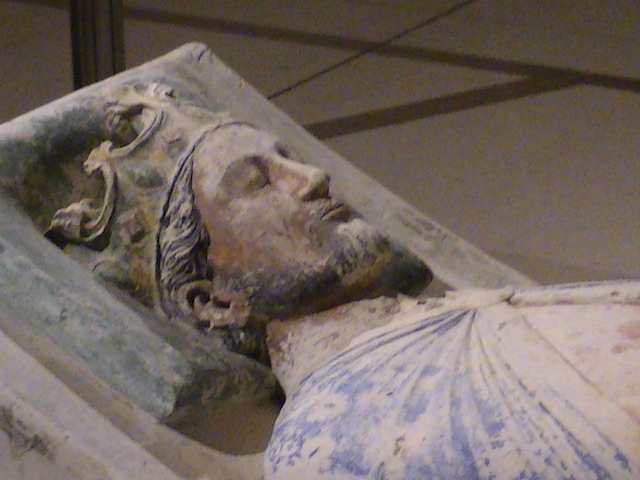RICHARD retired to his tent unconcerned; meanwhile the castle was taken, and every rebel hanged – except Richard’s assailant, a mere boy named Bertrand, who was dragged to the king’s bedside.*
By now Richard’s wound was gangrenous, and his mighty frame crumbling. “What harm have I done you?” he demanded pettishly. “None,” was Bertrand’s reply, “but murdering my father and my two brothers. So slay me too,” he taunted, baring his neck; “nothing can rob me of my victory!”
There was a long pause. Then to the would-be martyr’s disappointment, “Live on!” the King commanded. “And thank me every morning for the sunrise. May my example give hope to those vanquished today!” He also promised Bertrand a hundred shillings.*
But the King’s chief officer, Mercardier, knew nothing of this, and
had Bertrand hanged; for the conqueror of Saladin never recovered from
Bertrand’s arrow, and died on April 6th, 1199, prompting Roger of
Howden’s epitaph,
‘In this man’s death
The Lion was slain by the ant.’
Charles Dickens and Roger of Howden name him Bertrand or Bertram, but several other names have been given to Richard’s nemesis by chroniclers. How much of the story is true remains debatable, though Richard did die at the Château de Châlus Chabrol near Limoges, of a wound from a crossbow bolt that turned septic.
Dickens wonders whether the King remembered the time when Saladin sent fruits and snows to cool his fever as he lay in his tent after Arsuf. “Perhaps some remembrance of his generous enemy Saladin, who was not a Christian, came into the mind of the dying King.”


